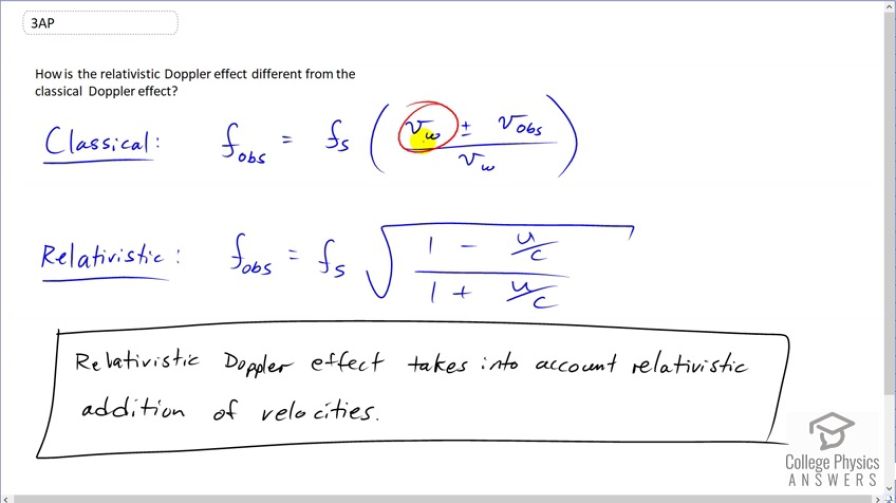Question
How is the relativistic Doppler effect different from the classical Doppler effect?
Final Answer
The relativistic Doppler effect takes into account relativistic addition of velocities.
Solution video
OpenStax College Physics for AP® Courses, Chapter 28, Problem 3 (Test Prep for AP® Courses)

vote with a rating of
votes with an average rating of
.
Video Transcript
This is College Physics Answers with Shaun Dychko. The classical Doppler effect says that the frequency observed equals the source frequency times the speed of the wave through some medium and plus or minus, depending on the direction of the observer, the velocity of the observer divided by the speed of the wave. And then where as the Relativistic Doppler effect, says that the frequency observed is the source frequency times the square root of 1 minus the velocity divided by speed of light divided by 1 plus the velocity of speed of light. So the Relativistic Doppler Effect takes into account relativistic addition of velocities and that's the difference.